Search Results
Showing results 161 to 180 of 192
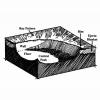
Mars Perseverance Activity: Mud Splat Craters
Source Institutions
In this activity, learners explore the physics of impact craters from their own backyard using mud. Learners are encouraged to match features of real impact craters to their models.

Our Beautiful World
Source Institutions
In this Bob the Builder(TM)-themed activity, learners go on a nature walk outside and describe what they observe using their senses.
Hexagon Hunt
Source Institutions
This activity gets learners looking at 6-sided shapes in nature, including the cells of a beehive, as well as other shapes.

Why do Hurricanes go Counterclockwise in the Northern Hemisphere?
Source Institutions
In this kinesthetic activity, learners will play a game with a ball to demonstrate the Coriolis force, which partly explains why hurricanes in the Northern Hemisphere rotate counterclockwise.
Big and Little Cups
Source Institutions
In this indoor or outdoor water activity, learners pour water from small cups to large cups and containers. In doing so, they discover water takes the shape of its container.
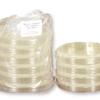
Does Sunscreen Protect My DNA?
Source Institutions
In this laboratory experiment, learners explore how effectively different sunscreens protect yeast cells from damage caused by ultraviolet (UV) radiation.
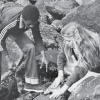
Rock Pioneers
Source Institutions
In this outdoor activity/field trip, learners investigate organisms that live along the ocean's rocky coast.
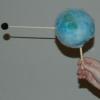
Exploring Strange New Worlds
Source Institutions
This fun and simple hands-on astronomy activity lets learners explore model planets (that they or an educator will create), using methods NASA scientists use to explore our Solar System.
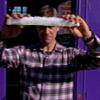
Jem's Pykrete Challenge
Source Institutions
In this activity, learners make pykrete by freezing a mixture of water and a material like cotton wool, grass, hair, shredded paper, wood chips, or sawdust.
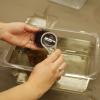
Tide Pool Survival
Source Institutions
In this activity, learners observe tide pool animals in a touch tank to consider how they survive.

Measuring Wind Speed
Source Institutions
In this indoor and/or outdoor activity, learners make an anemometer (an instrument to measure wind speed) out of a protractor, a ping pong ball and a length of thread or fishing line.

Cloud Fun
Source Institutions
Learners complete a series of hands-on and investigative activities to explore cumulus clouds.

Make Your Own Weather Station
Source Institutions
This three-part activity shows learners how to build three meteorology tools: a wind vane, a rain gauge, and a barometer.

Soil Profile
Source Institutions
In this activity, learners will create a soil profile in a bottle. They will learn about the organic and inorganic matter found in soil and observe as it separates into layers in the bottle.
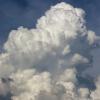
Convection
Source Institutions
In this activity, learners model atmospheric convection currents using food coloring, water, and clear cups. Activity includes step-by-step instructions, STEM connections, and more.
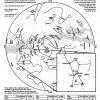
Supernova Star Maps
Source Institutions
This fun astronomy activity allows learners to experience finding stars in the night sky that will eventually go supernova. This activity is perfect for a star party outdoors.
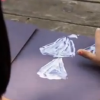
Sunblock Investigation
Source Institutions
In this "Sid the Science Kid" activity, learners set up a simple experiment to find out how sunscreen counteracts the effects of the sun.
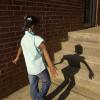
Exploring Shadows
Source Institutions
This activity guide features three related explorations to help learners ages 3-6 investigate shadows via the following science concepts: A shadow is made when an object blocks the light; you can chan
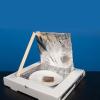
Cook Food Using the Sun
Source Institutions
Learners build a solar oven from a cardboard pizza box, aluminum foil and plastic. Learners can use their oven to cook S'mores or other food in the sun.
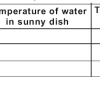
Cool Trees
Source Institutions
This warm weather activity introduces learners to the impact trees have on blocking the sun's heat and reducing temperature on the Earth's surface.
